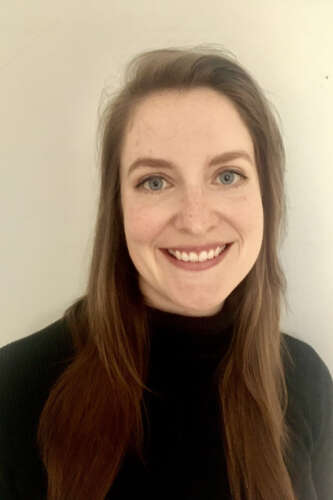Influence of food prices on child marriage in Ethiopia, impacts of digital technologies on Canadian farmers and sociability among urban strangers are the research stories that have led three University of Guelph graduate students to the finals of the annual Storytellers Challenge run by the Social Sciences and Humanities Research Council (SSHRC).
The annual competition challenges post-secondary students across the country to inspire audiences with a research story — in no more than three minutes or 300 words — about how SSHRC-funded research is making a difference in the lives of Canadians.
Grad students prioritize research to inform productive policy
Among the top 25 storytellers are:
- Monika Bischof, an MSc student in food, agricultural and resource economics
- Emily Duncan, a PhD candidate geography, environment and geomatics
- Edith Wilson, a PhD candidate in sociology
“We are delighted for the excellence these outstanding researchers and communicators have achieved to date,” said Dr. Malcolm Campbell, vice-president (research), “and we are proud that Monika, Emily and Edith make the University of Guelph research community their scholarly home. All the best to their continued success.”
Selected from 230 applicants from post-secondary institutions across Canada, the three researchers will now compete for one of the coveted final five spots.
Monika Bischof

Drawing on the experiences of subsistence farmers in rural Ethiopia, Bischof deepens our understanding of the complexities that cause child marriage.
She argues that child marriage is a strategy for coping with high food prices. Both the bride price and a reduced number of mouths to feed help ease a household’s food insecurity.
“The value of my research comes from its potential to one day inform productive policy that eliminates child marriage in Ethiopia and in other nations too,” Bischof said.
Emily Duncan

Duncan investigates the social consequences of new digital agricultural technologies like smart tractors, drones and big data analytics on our food system.
Her survey of more than 1,000 farmers across Canada found that while they have adapted to these technologies, they also have important concerns around data governance.
“Digital agriculture has a transformative potential,” she said, “but we need to pay careful attention to who benefits from new technologies and who might be left behind.”
Edith Wilson

“It has never been more important to understand the nuances of living in proximity with strangers,” said Wilson, of our increasingly urbanized world.
A research assistant on the Sociable Cities project, she observes everyday interactions between people in public gathering spaces such as public ice rinks, skateparks and dog parks. Her presentation explores how social inclusion and exclusion operate in even the most commonplace public interactions between strangers.
Each finalist receives $3,000 and a chance at one of the coveted final Ffve spots, which come with an additional $1,000.
Those five winners will be announced at an event at the Congress for the Humanities and Social Sciences on May 16 at 2 p.m. (ET), which will be live streamed for the public.
